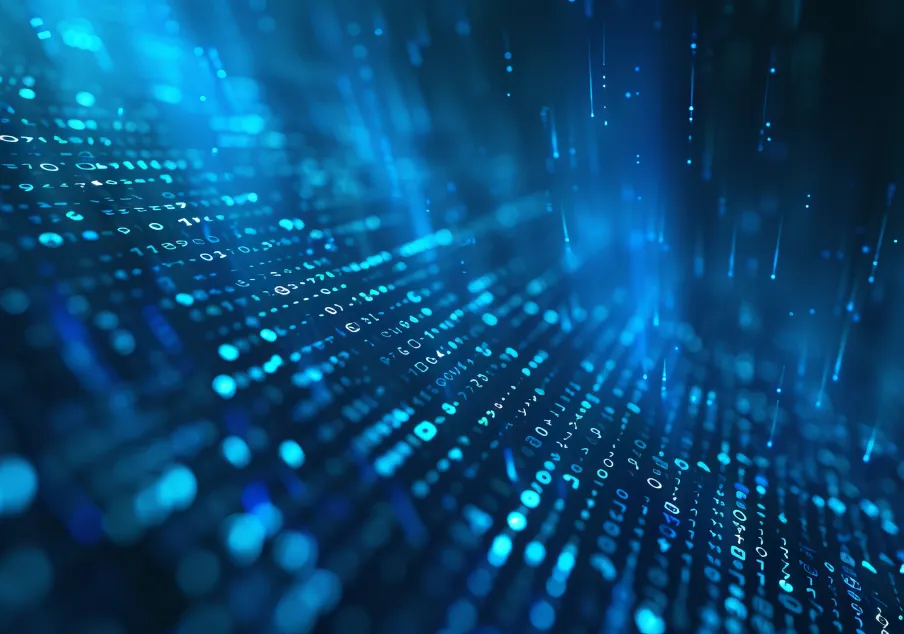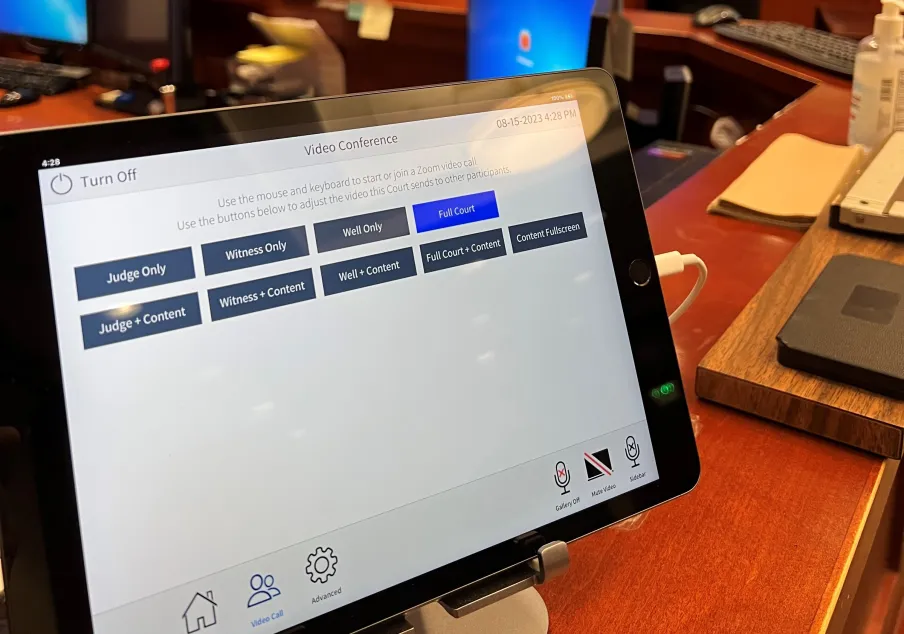Technology

Innovating justice
Courts today face the growing challenge of adapting to rising caseloads, navigating cybersecurity threats, and keeping up with rapidly changing technology (like artificial intelligence). Our technology team provides expert assistance and resources to navigate these challenges, driving efficiency, security, and accessibility. We empower courts to modernize, streamline operations, and enhance public trust through strategic innovation and business process reengineering.

Understanding artificial intelligence
Helping courts navigate AI adoption with comprehensive strategy development, education, governance, and real-world applications.
Need assistance?
Our technology team is here to help. Whether you're looking for more information, technical support, or want to explore a potential project, we're happy to connect.

Managing court technology
Practical resources and guidance to support effective planning, implementation, evaluation, and long-term management of court technology.

Advancing standards, process & business improvements and education
Collaborating with the Joint Technology Committee (JTC) to promote standards, process and business improvements, and education and training in court technology.

Strengthening cybersecurity
Ensuring your court IT systems remain secure through risk assessments, governance, and disaster recovery planning.
Browse recent technology postings & resources
eCourts 2026
Join us for a unique, immersive education opportunity designed for court professionals hosted every other year in Las Vegas.
AI in criminal cases: Courts' role in preserving constitutional rights
Learn how AI is being used in the criminal justice system and what guardrails are necessary to preserve Fourth Amendment rights, due process, and equal protection. Discover practical approaches for courts to authenticate AI evidence, assess its reliability, and ensure that technological capabilities do not erode fundamental rights.
Data Dives: AI solutions for courts to address the digital divide
Learn about NCSC's new initiative that will use AI solutions to address long-standing structural challenges that limit efficiency, accessibility, and service quality in rural courts.
Managing court technology
Practical resources and guidance to support effective planning, implementation, evaluation, and long-term management of court technology.
Rural justice
We work with courts, justice stakeholders, and others to share best practices, deliver trainings, and connect partners to support rural communities.
AI foundations in the courts
Here are some practical insights for building a solid foundation for responsible AI use in your court, encompassing privacy, bias, ethics, and accessibility.
AI-generated evidence is a threat to public trust in the courts
This rise in fabricated evidence comes at a time when defensive technologies are still unable to reliably identify AI-generated content. While AI tools can offer genuine benefits to courts, realizing those benefits requires maintaining the integrity of evidence that underpins trust in the courts.
Artificial intelligence (AI)
Explore AI use cases, guidelines for courts, and engage in the AI implementers' forum. The TRI/NCSC AI Policy Consortium provides a platform for legal thinkers and tech enthusiasts to discuss AI's impact on the justice system.
Navigating the AI landscape: Best practices for legal professionals
Explore the practical implications of AI for legal practitioners, focusing on how to effectively integrate these technologies into daily workflows while mitigating potential risks.
A legal practitioner’s guide to AI & hallucinations
Using AI carries both responsibilities and risks for legal professionals. Understand how generative AI works, what it does and does not do well, and how to use it responsibly.
How online dispute resolution works for everyone
Moving some processes online offers a a practical way to resolve cases more efficiently. Our tested tools, expert guidance, and lessons from courts around the globe will help you adopt ODR in your court with confidence.
Lessons learned in online dispute resolution
These lessons, drawn from real court pilot programs, offer a foundation for your court to launch or improve an ODR program.
AI tools, self-represented litigants & the future of access to justice
Learn how courts and legal aid organizations are addressing critical questions about how self-represented litigants can use AI tools in constructive ways.
Guidance for implementing AI in courts
These two guides provide practical steps for integrating AI tools safely, effectively and responsibly.
Contracting digital services for courts
NCSC offers guidance to help your court navigate complex agreements with digital service providers to ensure transparency, security, and fairness.
Court Innovation Lab inspires the future of court technology
Our Court Innovation Lab showcases new technologies and encourages courts to collaborate, design, test, and assess solutions to address current and future challenges.
Reach your technology goals
We can help solve your court's toughest problems
Through expert guidance, industry-leading frameworks, and strategic partnerships, we ensure that courts leverage technology to enhance operations while upholding fairness and justice.











